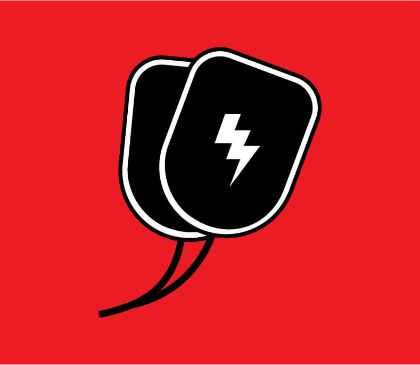What’s the Difference Between SCA and a Heart Attack?
- Feb 3, 2020

What, exactly, is sudden cardiac arrest?
Well, for starters, it’s probably not what you think it is. You’ve almost certainly used the expression “Oh my goodness! You nearly gave me a heart attack!” But in all likelihood, what you really meant was, “Good grief, don’t sneak up on me like that! I nearly experienced sudden cardiac arrest!”
Doesn’t have quite the same ring to it, does it?
Popularly held misconceptions and melodrama aside, a heart attack is not sudden cardiac arrest and sudden cardiac arrest is not a heart attack.
What’s a Heart Attack?
Heart attacks are, essentially, a circulation problem, and they occur when blood flow to a person’s heart is severely reduced or blocked. Heart attacks can be relatively mild or very, very serious.
During a heart attack, an artery becomes clogged and cannot carry enough oxygen to the heart. The heart may continue to beat normally but if the blockage is not quickly resolved, parts of the cardiac muscle will begin to die from lack of oxygen. The longer a heart attack goes on without treatment, the greater the damage to the muscle.
What’s Sudden Cardiac Arrest?
Unlike a heart attack — which is caused when blood flow to part of the heart is blocked and has symptoms that can occur hours, days, weeks, and even months before onset — cardiac arrest is an electrical malfunction.
Cardiac arrest occurs when an individual’s heart suddenly and unexpectedly stops beating, which prevents blood and oxygen from flowing to vital organs. Unlike a heart attack, SCA is always serious. Without the use of an automated external defibrillator (AED) to shock the heart back into a healthy rhythm, death can occur within minutes.
Sign up for first aid, CPR, and AED training today! Cardio Partnersoffers CPR, First Aid, AED, and bloodborne pathogen training courses in all 50 states in traditional classroom settings and in blended learning courses. To learn more about our courses or to schedule a training, call our team at 800-544-0004 or email Cardio Partners at customerservice@cardiopartners.com.
DISCLAIMER: Information and resources found on the cardiopartners.com and aed.com websites/blogs is intended to educate, inform, and motivate readers to make their health and wellness decisions after consulting with their healthcare provider. The authors are not healthcare providers. NO information on this site should be used to diagnose, treat, prevent, or cure any disease or condition.












 CALL US:
CALL US: